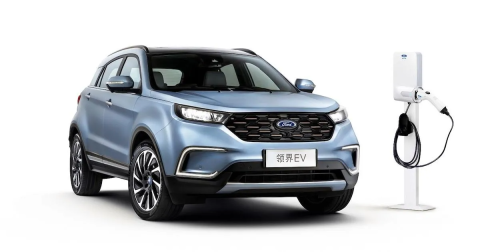Ford to build $900M cathode battery manufacturing plant for EVs in Quebec, Canada
Ford Motor Company has announced plans to build a massive cathode manufacturing plant in Canada to produce batteries for its future electric vehicles (EVs). The planned cathode manufacturing facility, which will cost the company $900 million (1.2 billion Canadian dollars), will be built by Ford in partnership with South Korea-based EcoProBM and SKOn.
The facility in question will be located in Bécancour, halfway between Montreal and Québec City in the Canadian province of Québec. It will be responsible for producing and supplying materials to supply batteries for Ford's future electric vehicles, including some of its future pickups. The factory will likely be ready for EV battery production in less than three years.
Lisa Drake, Vice President (VP) of EV Industrialization for Ford Model e, described the facility as “a cornerstone for Ford Motor Co.” in the entire North America. In simple words, the plant is expected to play a crucial role in the automobile giant’s transition from internal combustion engines (ICEs) to EVs.
The battery plant is going to mark the Dearborn, Michigan-based American automobile giant’s first investment in Québec. The plan will reportedly have an estimated annual production capacity of around 45,000 tonnes of cathode active materials (CAM). It is part of the company’s plan to localize the processing of key battery raw materials in the regions where it produces EVs as it will not only help it reduce costs but also make it eligible for the federal government’s tax credits.
Ford Canada’s President and Chief Executive Officer, Bev Goodman, said in a statement that the automaker was excited to invest in this new facility to create an efficient battery manufacturing supply chain in North America.
Speaking on the topic, Goodman said, “Ford has been serving customers in Canada for 119 years, longer than any other automaker … We’re excited for the opportunity for our first-ever investment in Québec with a new facility that will help shape the EV ecosystem there.”
The battery plant in Quebec will be operated by a joint venture (JV), called EcoPro CAM Canada LP, which claims that cathode active materials (first-rate Nickel Cobalt Manganese) will make rechargeable batteries more capable of delivering longer EV ranges than existing products. Production is expected to start sometime in the first half of 2026.
